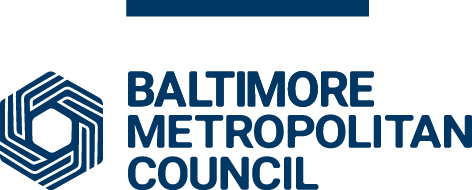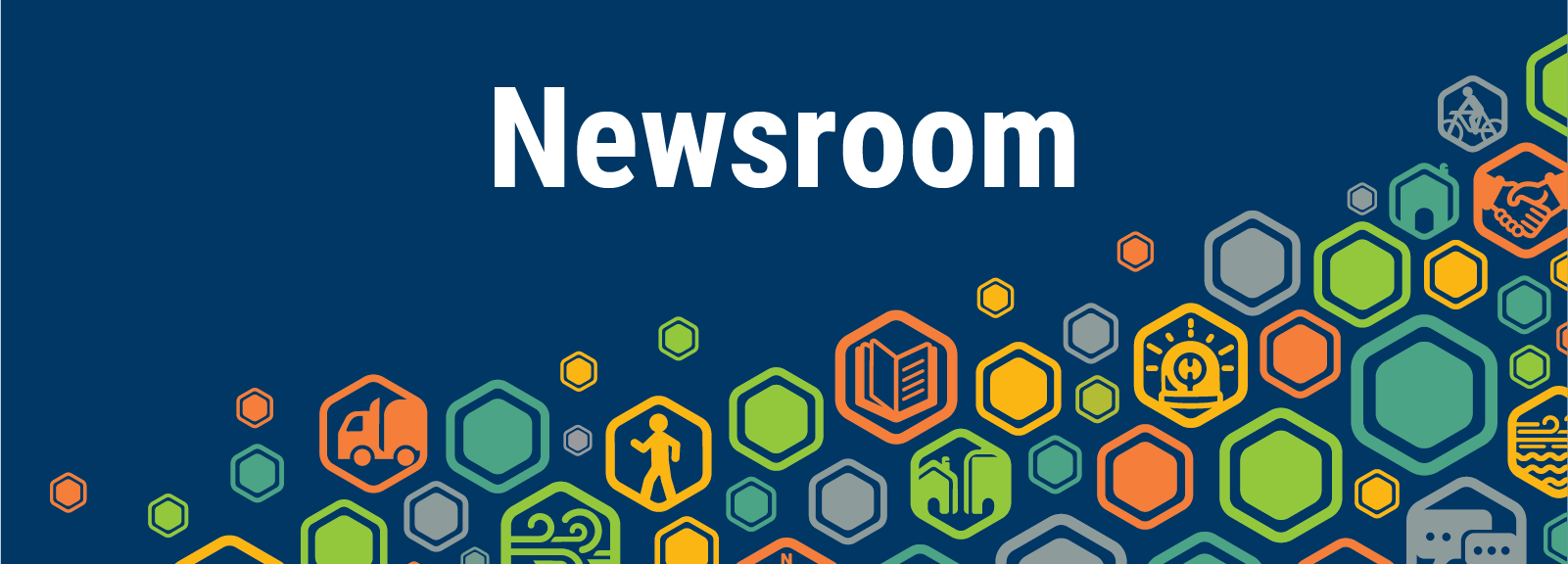
Carroll County Commissioner Stephen Wantz to Serve as 2021 Board of Directors Chair
[Baltimore, MD, January 15, 2021]
The Baltimore Metropolitan Council (BMC) hosted its virtual board of directors meeting at 9 a.m. on Friday, January 15, 2021, unanimously approving Carroll County Commissioner Stephen Wantz as its chair and Harford County Executive Barry Glassman as vice-chair for calendar year 2021. The board also welcomed Mayor Brandon Scott, who will serve as the 52nd Mayor of the region’s central city.
“I am proud to represent Carroll County on the BMC,” said Commissioner Wantz. “The region’s strength and success are valuable to the county, the region and Maryland as a whole. I look forward to continuing regional collaborative efforts with my colleagues as we work on the challenges ahead.”
Following the approval of the incoming chair and vice-chair, consultants from Nelson/ Nygaard Consulting Associates, Inc. provided a presentation on the Baltimore Region Transit Governance and Funding Study, a report commissioned by BMC’s sister body, the Baltimore Regional Transportation Board.
Mike Kelly, Executive Director of BMC, also presented key data points from BMC’s Baltimore Regional Recovery Dashboard, highlighting the industry sectors most exposed to pandemic risk and closures, job loss by sector, unemployment insurance claims, as well as vehicle traffic volume and transit ridership.
“Commissioner Wantz has been an invaluable board member and we are pleased to have his leadership as the region navigates the year ahead,” said Kelly. “His 30 year career as a firefighter and extensive knowledge of emergency management will be an asset as our member jurisdictions continue their efforts toward recovery.”
###
The Baltimore Metropolitan Council (BMC) works collaboratively with the chief elected officials in the region to create initiatives to improve the quality of life and economic vitality. BMC, as the Baltimore region’s council of governments, hosts the Baltimore Regional Transportation Board (BRTB), the federal metropolitan planning organization (MPO), and supports local government by coordinating efforts in a range of policy areas including emergency preparedness, housing, cooperative purchasing, environmental planning and workforce development.
BMC’s Board of Directors includes the executives of Anne Arundel, Baltimore, Harford and Howard counties, the mayor of the City of Baltimore, a member of the Carroll County and Queen Anne’s County boards of commissioners, a member of the Maryland State Senate, a member of the Maryland House of Delegates, and a gubernatorial appointee from the private sector.

New Statistics Illustrate COVID-19’s Economic Impact in Q2 of 2020
BALTIMORE, MD (December 21, 2020) – The Baltimore Metropolitan Council (“BMC”) issued an update to its Baltimore Regional Recovery Dashboard entitled “Monthly Employment by Industry and Jurisdiction” featuring employment figures from January of 2019 to June of 2020. This data, pulled from the US Bureau of Labor Statistics’ Quarterly Census of Employment and Wages (QCEW), includes the newest employment figures available from Q2 of 2020. This QCEW release is the first publicly reported data from the early months of the pandemic. BMC’s dashboard aims to illustrate the initial economic impact of COVID-19 on jobs in the Baltimore Region.
Maryland experienced a 14.1% decline in total employment in April of 2020 as compared to April of 2019. The Baltimore Region saw a 13.7% drop in jobs during the same period, with Queen Anne’s leading in percentage job loss among counties in the region at 24.4%. Anne Arundel County saw a 16.2% drop, while Baltimore County experienced a 15.1% loss.
Looking at employment in February of 2020 – prior to government restrictions on businesses and social gatherings – as compared to June of this year, the state as a whole saw a 9.1% decline in employment while the Baltimore Region experienced a loss of 8.9%. Howard saw the largest drop in jobs among counties in the region during this same period with an 11.2% decline, while Anne Arundel experienced a loss of 10.5%.
“We know our neighbors and local businesses are struggling amid COVID-19 and this important update will provide elected leaders with the first regional picture of the pandemic’s impact on employment,” said Baltimore County Executive and BMC Board Chair Johnny Olszewski. “As leaders we must continue to do whatever we can to use data to inform our decisions and this new tool will help us better understand the challenges—and develop solutions—to support our hardest hit workers and industries.”
The dashboard also isolates employment data by industry and jurisdiction. Industry data is presented at both the 2-digit and 4-digit North American Industry Classification System (NAICS) levels. Two-digit industry codes represent broad sectors of the economy, such as healthcare and construction, while 4-digit industry codes represent more specific industry groups, like offices of physicians and residential building construction.
Among the top 20 4-digit NAICS industries by total number of jobs, Maryland saw the largest percentage declines in employment among four main categories when comparing April of 2020 to the same month last year. Specifically, these were: amusement and recreation industries (golf courses, bowling alleys, gyms, etc.) down 66.2%; traveler accommodation (hotels, motels, etc.) down 64.6%; restaurants down 47.9%; and department stores down 36.7%. These four industries alone accounted for a loss of approximately 140,000 jobs across the state year over year.
Alternatively, during the period between February and June of 2020, traveler accommodation lost 46.3% of its jobs, amusement and recreation industries lost 38.3%, restaurants were down 25.8% and department stores declined 24.9% statewide.
In the Baltimore Region, among the top 20 4-digit NAICS industries by total number of jobs, four saw the most significant percentage declines in employment year over year from April 2019 to 2020: traveler accommodation dropped 64.8%, restaurants lost 50.9%; employment services decreased 27.9%; and physicians’ offices declined 14.4%. Collectively, these four industries accounted for a loss of approximately 66,000 jobs in the region.
However, between February and June of 2020, the four hardest hit industries at the 4-digit NAICS level by percentage employment loss in the Baltimore Region shift slightly: traveler accommodation dropped 45%, restaurants lost 27.4%, individual and family services (non-residential child and elder care) dropped 16.7%, and employment services decreased 14%.
In addition to the percent change in employment, the dashboard also displays jobs over time for all 2-digit NAICS industries and the top 20 4-digit NAICS industries by total private employment at the state, region and county levels. While the declines in employment between February and June of this year noted earlier are illustrative, this comparison obscures the fluctuation in jobs in the intervening months and does not account for seasonal employment changes.
Restaurants, for example, employed roughly 87,000 employees in the Baltimore Region in February of 2020. By April of this year, the industry was down to 44,000 employees in the region, but back up to 63,000 workers in June, recovering almost 20,000 positions. However, year over year, the industry was down roughly 30,000 employees from June of 2019, when it employed 94,000. Similarly, traveler accommodation accounted for roughly 11,000 jobs in February of 2020 for the region. This industry hit a low of approximately 4,000 employees in May, but recovered 2,000 jobs, reporting total employment of 6,000 in June of 2020. Again, year over year, this industry experienced a drop of roughly 6,000 jobs from June of 2019, when it employed over 12,000. Both industries, we note, typically see peak employment during the summer months.
“The data shows a dramatic initial reaction to COVID restrictions, with a sudden loss of jobs between March and April of 2020, followed by a gradual uptick in employment in many industries through June,” said BMC Executive Director Michael B. Kelly. “The data suggests the infusion of funds from the federal government to businesses and localities helped prevent a deeper loss in employment. We will continue to track and report this information to help our region’s leaders frame essential economic recovery efforts.”
A small but meaningful example of emerging employment opportunity, warehousing and storage jobs grew by 29.1% from April 2019 to 2020, adding roughly 6,000 employees across the state. From February to June of 2020, the same industry grew its employment by 21.5% or approximately 5,000 jobs statewide to a high of nearly 32,000 over the period covered.
In the Baltimore Region, services to buildings and dwellings (landscaping, janitorial, carpet and upholstery, etc.) added 8% employment, grocery stores increased 4.9%, and electronic instrument manufacturing added 3.6%, collectively adding a total of 3,000 jobs between February and June of 2020.
About the Baltimore Regional Recovery Dashboard
Launched in July of 2020, the dashboard is a tool to help policymakers understand and track the impacts of COVID-19 upon the seven county metropolitan area. Hosted on BMC’s website, the dashboard features data from across the organization’s areas of focus, including employment statistics, impacted industries, development permit activity, telework eligibility, and transportation.
About the Quarterly Census of Employment and Wages
The Bureau of Labor Statistics describes the Quarterly Census of Employment and Wages (QCEW) as “[a] program [that] publishes a quarterly count of employment and wages reported by employers covering more than 95 percent of U.S. jobs, available at the county, MSA, state and national levels by industry.” The Q2 2020 QCEW data was released to the public on December 2, 2020. The Q3 2020 data is scheduled for release on March 9, 2021. For more information, visit https://www.bls.gov/cew/.
###
The Baltimore Metropolitan Council (BMC) works collaboratively with the chief elected officials in the region to create initiatives to improve the quality of life and economic vitality. BMC, as the Baltimore region’s council of governments, hosts the Baltimore Regional Transportation Board (BRTB), the federal metropolitan planning organization (MPO), and supports local government by coordinating efforts in a range of policy areas including emergency preparedness, housing, cooperative purchasing, environmental planning and workforce development.
BMC’s Board of Directors includes the executives of Anne Arundel, Baltimore, Harford and Howard counties, the mayor of the City of Baltimore, a member of the Carroll County and Queen Anne’s County boards of commissioners, a member of the Maryland State Senate, a member of the Maryland House of Delegates, and a gubernatorial appointee from the private sector.

BMC is honored to have provided technical support to this important work. We thank GBC for their leadership and look forward to continuing our collaboration to enhance our region’s workforce system.
Greater Baltimore Committee Issues Workforce Development Report
[Baltimore, MD, October 19, 2020]
The Greater Baltimore Committee has released a comprehensive report which identifies the top 20 occupations likely to produce the most family-supporting jobs in the Baltimore region over the next decade, while also outlining recommendations to enhance education and training systems and address structural racism, gender inequities and systemic barriers to workforce participation and advancement.
The report, Preparing for the Future. A Regional Workforce Development Initiative, includes more than 50 recommendations to ensure the region has a pipeline of skilled workers to fill high growth family-supporting jobs.
The top 20 family-supporting occupations identified in the report are in four industries projected to experience growth in family-supporting jobs in the decade ahead: business services, construction, information technology and healthcare.
“Focusing on business sectors that are projected to see the greatest growth in the next decade, the report will provide a roadmap to ensure that our region has the educated and skilled workforce to meet the needs of those industry sectors,” said Donald C. Fry, President and CEO of the Greater Baltimore Committee (GBC).
“The next step will be to implement the recommendations and the GBC is committed to guiding that effort.”
“This report is an urgent call to action,” said Calvin Butler, Senior Executive Vice President, Exelon, Chief Executive Officer, Exelon Utilities, GBC Chair, and chair of the GBC Regional Workforce Development Initiative Steering Committee, which guided the development of the report during the past 18 months.
The report was directed by the GBC Board of Directors to ensure the region’s educational and workforce development systems can meet future industry needs.
“By increasing business engagement with education and workforce systems we will see a transformative impact on the quality of our workforce and the growth of the regional economy,” said Butler.
Diane Bell-McKoy, President and CEO, Associated Black Charities and a member of the steering committee, said a key goal will be to address racial and systemic barriers to training and jobs.
“A key goal will be to address structural racism and how it inhibits access to upwardly mobile jobs, employment preparation, employment and upward mobility for Black and Brown workers. Addressing this issue can create a “win-win” for our economy and all employers in our region,” said Bell-McKoy. “This is crucial to the economic success of the region.”
According to the report, “Deliberate, decisive action by all parties…is required to dismantle systemic racism and to address persistent discrimination on the basis of race, gender and disability.”
Growth industries identified in the GBC report were drawn from the 2018 Baltimore Metropolitan Council’s Family-Supporting Jobs Report. That report defined family-supporting jobs as occupations that pay an hourly wage that allows working adults with less than a bachelor’s degree to provide for their family’s needs.
The GBC coordinated with the Baltimore Metropolitan Council to analyze demographic data for the top 20 occupations and identify trends within occupations and across industries. For example, the analysis found that while African American workers represented 29% of the region’s population in 2018, African American workers only have representative participation (29% or higher) in 5 of the 20 identified occupations.
In addition to identifying high growth family-supporting jobs that did not require a four-year degree, the steering committee compiled a regional inventory of key education and training programs by sector, emphasizing those that culminate in postsecondary credentials.
The committee also analyzed training programs across the region – Baltimore City, Anne Arundel, Baltimore, Carroll, Harford and Howard Counties.
A key goal of the analysis, said Fry, was to develop recommendations for how business and industry can become strategically engaged to improve education, workforce training, workforce agencies and employer programs, as well as address racial and gender inequities and systemic barriers.
Fry said the GBC now plans to involve all business and industry stakeholders in implementing the report’s recommendations and ensuring there is strong coordination with education and training providers. The implementation plan will prioritize the order of recommendations based upon multiple factors including: business interest and engagement, existing priorities of local workforce boards, agencies and education partners, and available resources.
According to the report, “Business and industry leaders’ enhanced participation in education and workforce systems has the potential to catalyze opportunities for underserved populations, to dismantle systemic racism and sexist practices within the workplace, to increase diversity within businesses to reflect the rich diversity of the region, and to foster a more inclusive economy in the Baltimore region.”
Dr. Sandra Kurtinitis, President, Community College of Baltimore County and a member of the GBC Board, said the report is timely and valuable, given that family-supporting jobs will be needed as the nation recovers from the Covid-19 pandemic.
“Community colleges and workforce training programs will be at the forefront of the economic recovery and are more important than ever at this time,” said Kurtinitis.
Some of the observations in the report include:
- Programs and systems are needed to strengthen the delivery of rapid, industry-recognized credentialing to workers in transition.
- Too many individuals who have attended K-12 schools are not academically prepared to succeed in college or careers and require significant remediation.
- The State of Maryland and local jurisdictions invest less state/local dollars in basic adult education than peer states and localities.
- Citing administrative burdens, businesses often do not take advantage of federal dollars to support incumbent worker training.
- Structural racism contributes to ongoing disparities in access to opportunity, career advancement, and equal pay for persons of color across occupations and industries.
Among some of the report’s recommendations:
- Leaders in business and industry, education, workforce development and philanthropy coordinate to create rapid training and certification programs in high-need, high-growth industries to support workers in transition.
- Business and industry actively engage in K-12 partnerships, including direct involvement in Career and Technology Education (CTE), dual enrollment, youth apprenticeships and work-based learning programs.
- State and local governments increase resources to support basic adult education.
The GBC and workforce stakeholders advocate for revisions to the federal incumbent worker training program to streamline the process and make the program more attractive to employers.
Business, industry and workforce stakeholders take proactive measures to educate themselves on systemic racism, undergo professional training and executive coaching on advancing equity…and implement changes to address systemic racism and bias within organizations.”
“Business and industry have a tremendous responsibility to engage more directly with the workforce system, remove barriers and improve education and training programs so that all residents of the Greater Baltimore region can access the education and training needed to fill jobs in the high-growth occupations identified,” said Fry. “Family-supporting jobs and a skilled workforce to fill them are key to a thriving economy.”
Read the Report View the Appendices
ABOUT THE GREATER BALTIMORE COMMITTEE
The Greater Baltimore Committee (GBC) is a regional organization of business and civic leaders that includes businesses, nonprofit organizations and educational and civic institutions. It is the leading voice for the private sector in the Baltimore region on issues relating to economic growth, job creation, workforce development, transportation, the business climate and quality of life. The GBC’s membership is comprised of over 500 member organizations, including large, mid-size and small companies, nonprofits, education and foundations in the Greater Baltimore region.
###
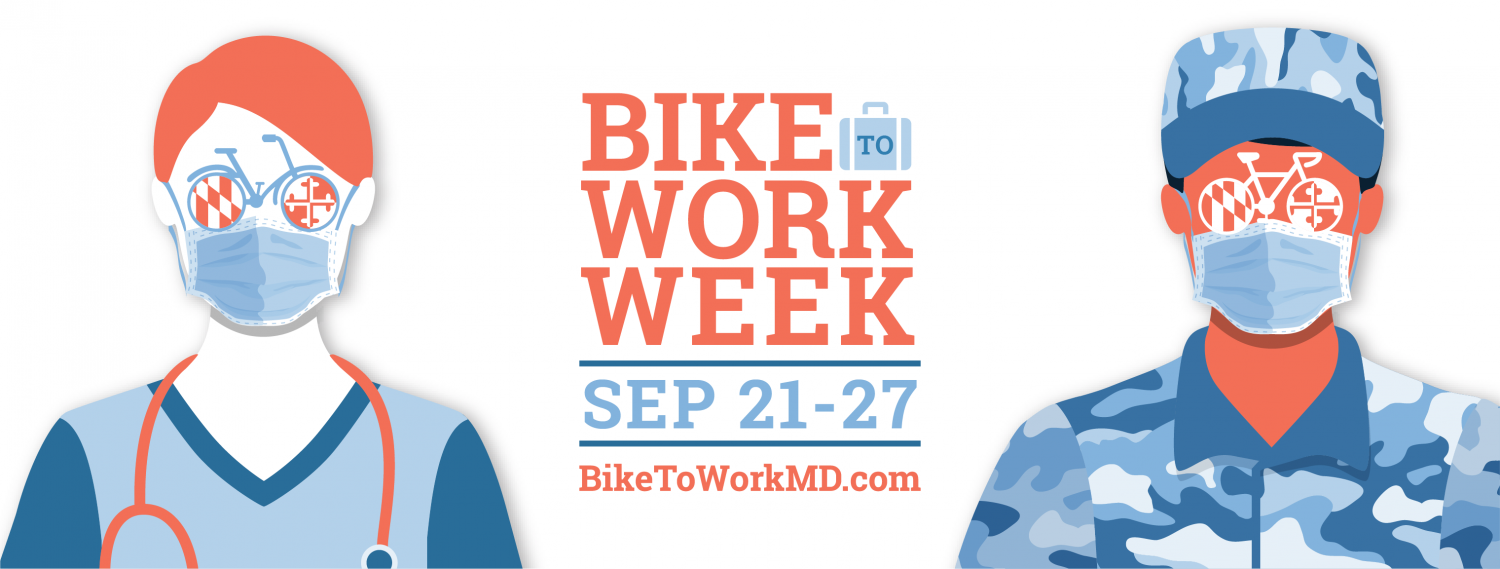
BALTIMORE, MD (Monday, October 5, 2020) – The Baltimore Metropolitan Council hosted several virtual biking events in the month of September motivating riders throughout the Baltimore Region to safely participate in biking activities. Cycle September began September 1st and lasted for the complete month, attracting 333 participants for the inaugural event in the region. An additional 675 people registered for the Love to Ride platform during the month of September, and will continue engaging in biking activities throughout the year. Finally, Bike to Work Week ran September 21-27, and drew 950 registrants
Bike to Work Week included online networking and encouragement for all riders, and opportunities to win prizes in place of the usual rallies and pit stop gatherings that participants have come to expect from this annual event. Registered cyclists were able to pick up a free t-shirt from local bike shops around the region.
The Love to Ride Cycle September Global Challenge was a fun, friendly, and free competition between workplaces, clubs, and individuals to see who can get the most people cycling in September – especially new riders. It served as another opportunity to ride for those who do not currently commute to work, as well as biking enthusiasts.
These programs help to promote biking as a safe alternative to motor vehicle travel. Biking promotes individual health, helps ease traffic congestion, and reduces emissions that contribute to air pollution.
About Bike to Work Week
The Baltimore Metropolitan Council organizes an annual Bike to Work Day celebration in the region. The event, which was previously scheduled for May 15th, was postponed, then converted to a virtual event, in light of COVID-19 restrictions. Bike to Work Week is a campaign that celebrates bicycling as a healthy commuting option, while promoting public awareness of its safety and environmental benefits. Bike to Work Week helps raise awareness of the rules of the road for drivers, pedestrians and cyclists, and highlights the need to improve bicycle facilities to improve safety.
About Love to Ride Central MD
The Baltimore Metropolitan Council has partnered with Love to Ride to bring more fun, more community, and more inspiration to get more people riding. Love to Ride is a biking encouragement website and app free to anyone who lives or works in the Central MD region.
###
The Baltimore Metropolitan Council (BMC) works collaboratively with the chief elected officials in the region to create initiatives to improve the quality of life and economic vitality. BMC, as the Baltimore region’s council of governments, hosts the Baltimore Regional Transportation Board (BRTB), the federal metropolitan planning organization (MPO), and supports local government by coordinating efforts in a range of policy areas including emergency preparedness, housing, cooperative purchasing, environmental planning and workforce development.
BMC’s Board of Directors includes the executives of Anne Arundel, Baltimore, Harford and Howard counties, the mayor of the City of Baltimore, a member of the Carroll County and Queen Anne’s County boards of commissioners, a member of the Maryland State Senate, a member of the Maryland House of Delegates, and a gubernatorial appointee from the private sector.

Baltimore Region Celebrates Biking With Virtual Bike to Work Week Event and Love To Ride Challenge
BALTIMORE, MD (Tuesday, September 1, 2020) – Registration is now open for Bike to Work Week in central Maryland at BiketoWorkMD.com. To ensure the safety of riders, BMC is gearing up for a COVID-safe virtual Bike to Work 2020 celebration from September 21 to 27. The rallies and pit stop gatherings that participants have come to expect from this annual event will be substituted for online networking and encouragement for all riders, and even more prizes!
Cyclists who register for Bike to Work 2020 and ride during the week of September 21 to 27 can pick up a free t-shirt at one of twenty area bike shops around the greater Baltimore region and have a chance to win prizes. T-shirts are limited to the first 2,500 registrants. Registration for Bike to Work Week 2020 is open through Saturday, September 19th at BiketoWorkMD.com.
For those not commuting to work, the Love to Ride Cycle September Global Challenge is a fun, friendly, and free competition between workplaces, clubs, and individuals to see who can get the most people cycling in September – especially new riders.
Riders can earn points for every mile they ride, every day they ride, and every new person they encourage to ride. Individuals only have to ride for ten minutes anytime, anywhere – for fun, fitness, transportation or even indoors – to be eligible for prizes and help their team climb the leaderboard.
Participants can also join the Cycle September Global Challenge as a member of the Love to Ride Central Maryland community by registering at lovetoride.net/centralmd. From the website, riders can join a company or group, or register a new group for Cycle September. To win prizes users simply log their rides via the Love to Ride website or app, or link to their favorite bicycling app.
About Bike to Work Week
The Baltimore Metropolitan Council organizes an annual Bike to Work Day celebration in the region. The event, which was previously scheduled for May 15th, was postponed, then converted to a virtual event, in light of COVID-19 restrictions. Bike to Work Week is a campaign that celebrates bicycling as a healthy commuting option, while promoting public awareness of its safety and environmental benefits. Bike to Work Week helps raise awareness of the rules of the road for drivers, pedestrians and cyclists, and highlights the need to improve bicycle facilities to improve safety.
About Love to Ride Central MD
The Baltimore Metropolitan Council has partnered with Love to Ride to bring more fun, more community, and more inspiration to get more people riding. Love to Ride is a biking encouragement website and app free to anyone who lives or works in the Central MD region.
###
The Baltimore Metropolitan Council (BMC) works collaboratively with the chief elected officials in the region to create initiatives to improve the quality of life and economic vitality. BMC, as the Baltimore region’s council of governments, hosts the Baltimore Regional Transportation Board (BRTB), the federal metropolitan planning organization (MPO), and supports local government by coordinating efforts in a range of policy areas including emergency preparedness, housing, cooperative purchasing, environmental planning and workforce development.
BMC’s Board of Directors includes the executives of Anne Arundel, Baltimore, Harford and Howard counties, the mayor of the City of Baltimore, a member of the Carroll County and Queen Anne’s County boards of commissioners, a member of the Maryland State Senate, a member of the Maryland House of Delegates, and a gubernatorial appointee from the private sector.

[Baltimore, MD, August 27, 2020] The Federal Emergency Management Agency (FEMA) awarded $843,988 to the Baltimore region to conduct emergency housing and shelter planning through the FY 2020 Regional Catastrophic Preparedness Grant Program (RCPGP) on August 19, 2020. Through a partnership between the City of Baltimore and the Baltimore Metropolitan Council (BMC), the grant will fund regional housing and shelter planning at BMC in collaboration with a committee of local emergency management agencies in the Baltimore region known as the Baltimore Urban Area Security Initiative (UASI). The project will produce individually tailored plans for each jurisdiction as well as one regional plan; and will support training and exercises for emergency management personnel.
The seven jurisdictions of the Baltimore UASI are: Annapolis, Anne Arundel County, Baltimore City, Baltimore County, Carroll County, Harford County, and Howard County. Collectively, the population of these counties and municipalities accounts for approximately 2.7 million of the 6.4 million residents of the state of Maryland.
“Access to stable shelter is essential to protecting our health and wellbeing — especially in a time of crisis,” said Johnny Olszewski, Baltimore County Executive and BMC Board Chair. “I applaud the Baltimore UASI and BMC for working together to secure funding that will expand our region’s ability to provide regional housing and shelter planning.”
In 2019, the Baltimore region received a grant award from the RCPGP to hire two planners at BMC to conduct food and water disaster supply chain planning, training, and exercise activities.
The RCPGP-funded planners have been actively engaged in the COVID-19 response by providing subject matter expertise to the region’s emergency food distribution planning operations. These funds have allowed the Baltimore UASI to collaborate, share best practices, and document procedures and training.
“BMC has been instrumental in the response to COVID-19 in the region,” said Stephen Wantz, Carroll County Commissioner and BMC Board Vice-Chair. “Their work in providing resources, guidance and standards in food and water distribution throughout the pandemic has been extremely valuable.”
The FY 2019 RCPGP provided resources to address mass care operations in relation to food and water supply chain distribution efforts. The new FY 2020 RCPGP award will allow the region to continue to build upon the current mass care work and expand to address sheltering needs as it relates to all hazards.
###

To ensure the safety of riders, BMC is gearing up for a COVID-safe Bike to Work 2020 from September 21-27. Combined with participation in the Love to Ride Cycle September Global Challenge as part of the Central MD community, the usual rallies and pit stop gatherings will be replaced with online networking and encouragement for all riders, and even more prizes!
Cyclists who register for Bike to Work 2020 and ride during the week of September 21-27 can pick up a free t-shirt at over a dozen area bike shops (open to the first 2,500 registrants) AND have a chance to win prizes.
Not commuting to work? No problem! The Cycle September Global Challenge is a fun, friendly, and free competition between workplaces, clubs, and individuals to see who can get the most people cycling in September – especially new riders.
Riders can earn points for every mile they ride, every day they ride, and every new person they encourage to ride. Individuals only have to ride for ten minutes anytime, anywhere (for fun, fitness, transportation or even indoors) to be eligible for prizes and help their team climb the leaderboard.
Register for Bike to Work 2020 from August 7 – September 19 @ biketoworkmd.com
Join the Cycle September Global Challenge as a member of the Love to Ride Central MD community by following these 3 easy steps:
- Register at lovetoride.net/centralmd
- Join your company or group or register a new group for Cycle September
- Log rides via the website or app or link to your favorite bicycling app to win prizes
Sign up for Cycle September before it starts on September 1, and you'll be in the drawing for an early bird prize. You can win an e-bike from Charge or a local prize pack!
About Bike to Work Week
The Baltimore Metropolitan Council organizes an annual Bike to Work Day celebration in the region. The event, which was previously scheduled for May 15th, was postponed, then converted to a virtual event, in light of COVID-19 restrictions.
Bike to Work Week is a campaign that celebrates bicycling as a healthy commuting option, while promoting public awareness of its safety and environmental benefits. Bike to Work Week helps raise awareness of the rules of the road for drivers, pedestrians and cyclists, and highlights the need to improve bicycle facilities to improve safety.
About Love to Ride Central MD
The Baltimore Metropolitan Council has partnered with Love to Ride to bring more fun, more community, and more inspiration to get more people riding. Love to Ride is a biking encouragement website and app free to anyone who lives or works in the Central MD region.

BALTIMORE, MD (July 21, 2020) – The Baltimore Metropolitan Council (“BMC”) officially launched its Baltimore Regional Recovery Dashboard to help policymakers understand and track the impacts of COVID-19 on the seven county metropolitan area. Hosted on BMC’s website, the dashboard features data from across the organization’s areas of focus, including unemployment claims, impacted industries and transportation ridership. The dashboard utilizes Tableau, a data visualization tool, to provide information in an interactive format.
“To effectively combat this crisis across our region and state, it’s critical that leaders have the ability to look at the full picture and have the best data available to plan for our ongoing response — as well as our recovery,” said Baltimore County Executive and BMC Board Chair Johnny Olszewski. “This new dashboard will serve as a wide-angle lens, providing a range of data to help inform our long-term strategies so that we can emerge as a stronger, more resilient, and greater Baltimore.”
The dashboard presents unemployment insurance claims for all U.S. states, Maryland counties, and Maryland counties by industry at the 2-digit NAICS code level. Additional charts provide data on the sectors most exposed to economic impacts from COVID-19. “Exposed” sectors include those that have experienced significant reductions in demand, such as restaurants and bars, travel and transportation, entertainment, personal services, as well as certain types of retail and manufacturing. These dashboards compare the most exposed sectors across jobs, gross regional product, payrolled business locations, and median hourly wages.
The data shows, for example, that the Baltimore region is reliant on a larger share of exposed sector employment within its economy than its neighbors to the south in the Capital region. This suggests that the economic impact of the pandemic may be more acute in greater Baltimore than other regions with more diversified economies.
“COVID-19 has taken a toll on our region’s residents and threatens to have a protracted impact on our economy,” said BMC Executive Director Michael B. Kelly. “As a planning organization, our goal is to present the data and bring together the partners to frame our post-pandemic future.”
The dashboard also displays transportation data, including regional transit ridership and the percentage of people staying home by county. As of early July, transit ridership was still down 60% year over year, though it had improved from the low point of nearly -78% in late April. Similarly, Maryland Transportation Institute data shows that Baltimore City and Howard County residents stayed home at significantly higher rates than their counterparts in Queen Anne’s and Carroll Counties in the first week of July. The fewer people traveling has a corresponding impact on economic activity, such as retail and restaurant sales.
In the coming weeks, BMC aims to add additional data points around new building permits, as well as housing delinquencies and homelessness.

BMC staff are proud to participate in the Chesapeake Bay Foundation’s (CBF) ‘Walk the Watershed’ event this year. Throughout the month of June, our team will work toward a goal of traveling 200 miles in support of a healthier waterway. This target represents the approximately 200-mile-long Chesapeake Bay. Staff will also seek donations on behalf of CBF as an element of this campaign.
Team members contribute to the 200-mile goal by tracking and reporting their individual walking, bike riding, and running distances. Photos and videos document and share this experience publicly.
To date, the team has reached its 200-mile goal and raised over $600 in donations.
Part of BMC's mission is to improve our region’s quality of life – of which the health of the Bay plays an important role. A clean Chesapeake Bay provides a healthy place for fish and shellfish to grow, and a more beautiful and safe place to boat and recreate. The Bay’s waters also provide vital economic benefits to the tourism and seafood industry that are entrenched in our region’s history and future.
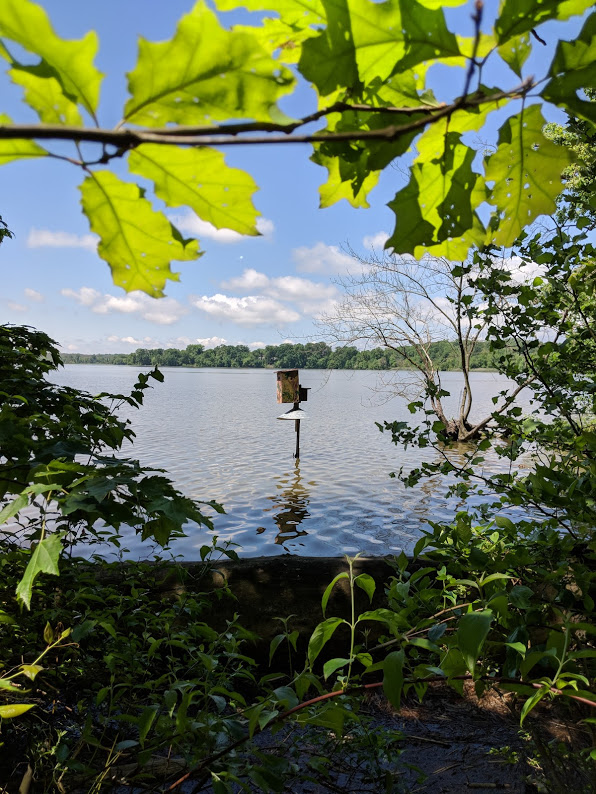 |
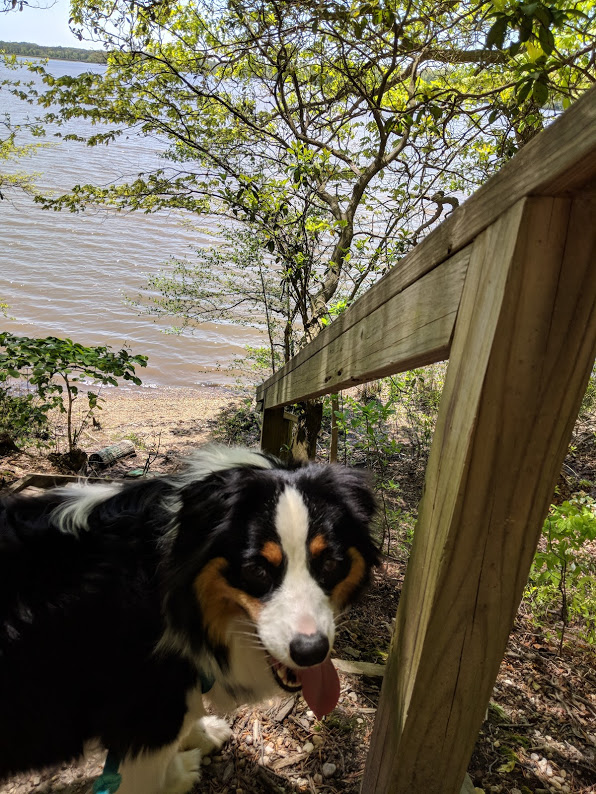 |
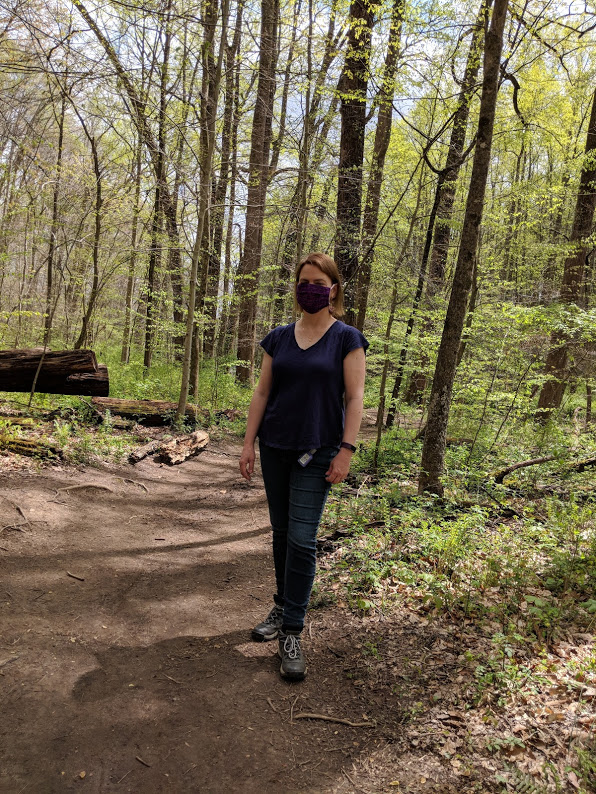 |

The Maryland Highway Safety Office (MHSO) organized a safety seminar on Thursday, April 30, for members of National Highway Traffic Safety Administration (NHTSA) Region 3, which includes Delaware, District of Columbia, Maryland, Pennsylvania, Virginia, and West Virginia. BMC staff presented the LOOK ALIVE regional pedestrian and bike safety campaign and law enforcement training in support of the education campaign. Over 120 participants from across the region attended the online seminar.
Jeff Dunckel with the MHSO provided an overview of statewide pedestrian fatalities, which have been on an increasing trend since 2015, rising from 99 to 133 in 2018. During the same period, the Baltimore region went from 48 to 68 pedestrian fatalities. Between 2014 and 2018, three jurisdictions in the Baltimore region (Baltimore City, Baltimore County and Anne Arundel County) were among the top five for number of pedestrian involved injury/fatal crashes in Maryland. The same three are also among the top five for pedestrian involved fatalities by jurisdiction.
Bala Akundi, Principal Transportation Engineer at BMC, and Kenna Swift Williams of Sherry Matthews Group, provided an overview of the development of the LOOK ALIVE campaign starting in early 2019 through its launch in June and over the fall/winter. The campaign began as two video-spots featuring signal woman – a personification of the walk signal – and conveyed messages to drivers, pedestrians and cyclists. The 2020 campaign included media pitches for law enforcement activations in November that garnered significant media coverage including a WBAL feature with BMC Executive Director Mike Kelly.
The COVID-19 pandemic postponed elements of the campaign, such as the spring enforcement wave. One of the last Look Alive events was on March 7 at the B’More Healthy Expo at the Baltimore Convention Center. This joint event with Baltimore City DOT and MDOT SHA featured a Virtual Reality (VR) challenge.
BMC, in partnership with Baltimore County Police Department and MHSO, organized four law enforcement-training workshops between May 2019 and February 2020 and trained over 100 officers from across the region/state on how to conduct pedestrian enforcement activations. Following each of these sessions were multiple waves of enforcement that resulted in positive media coverage, citations and warnings.
BMC is looking forward to working with MHSO and local partners in continuing the LOOK ALIVE campaign during the rest of the year and into 2021.
